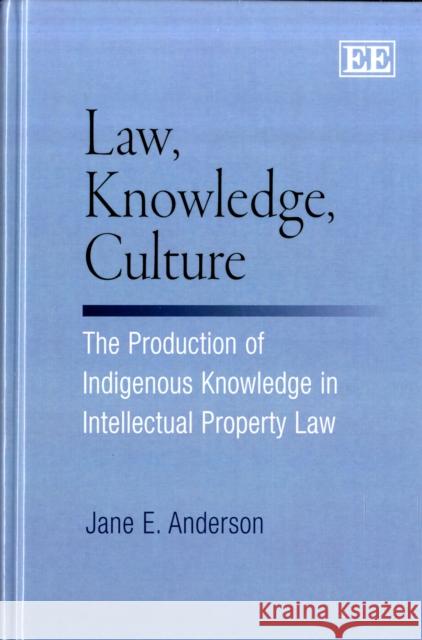LAW, KNOWLEDGE, CULTURE » książka
LAW, KNOWLEDGE, CULTURE
ISBN-13: 9781845424855 / Angielski / Twarda / 2009 / 272 str.
This informative book investigates how indigenous and traditional knowledge has been produced and positioned within intellectual property law and the effects of this position in both national and international jurisdictions. Drawing upon critical cultural and legal theory, Jane Anderson illustrates how the problems facing the inclusion of indigenous knowledge resonate with tensions that characterise intellectual property as a whole. She explores the extent that the emergence of indigenous interests in intellectual property law is a product of shifting politics within law, changing political environments, governmental intervention through strategic reports and innovative instances of individual agency. The author draws on long-term practical experience of working with indigenous people and communities whilst engaging with ongoing debates in the realm of legal theory. Detailing a comprehensive view on how indigenous knowledge has emerged as a discrete category within intellectual property law, this book will benefit researchers, academics and students dealing with law in the fields of IP, human rights, property and environmental law. It will also appeal to anthropologists, sociologists, philosophers and cultural theorists.











